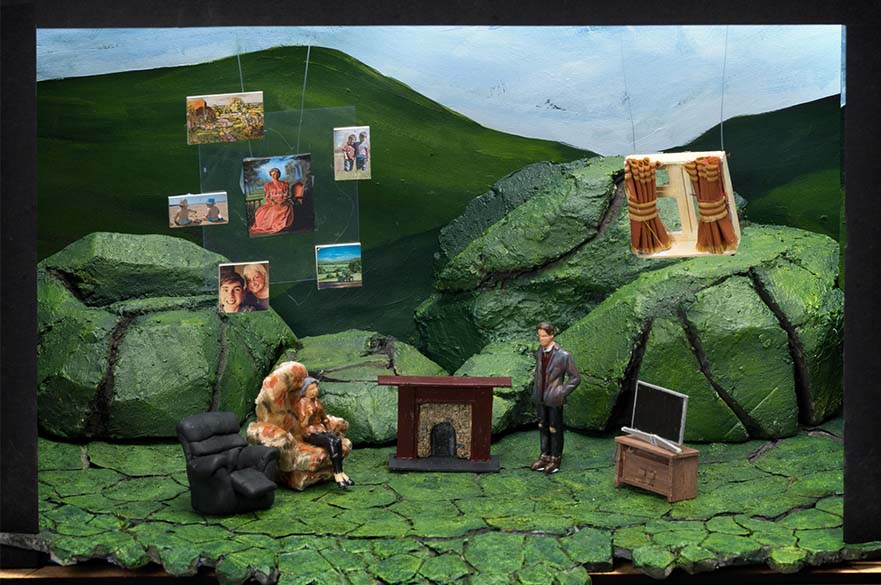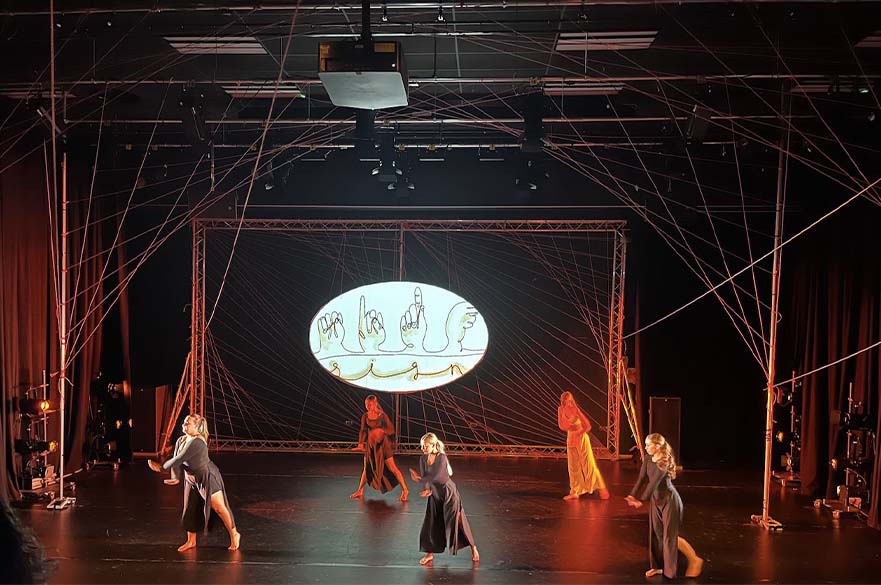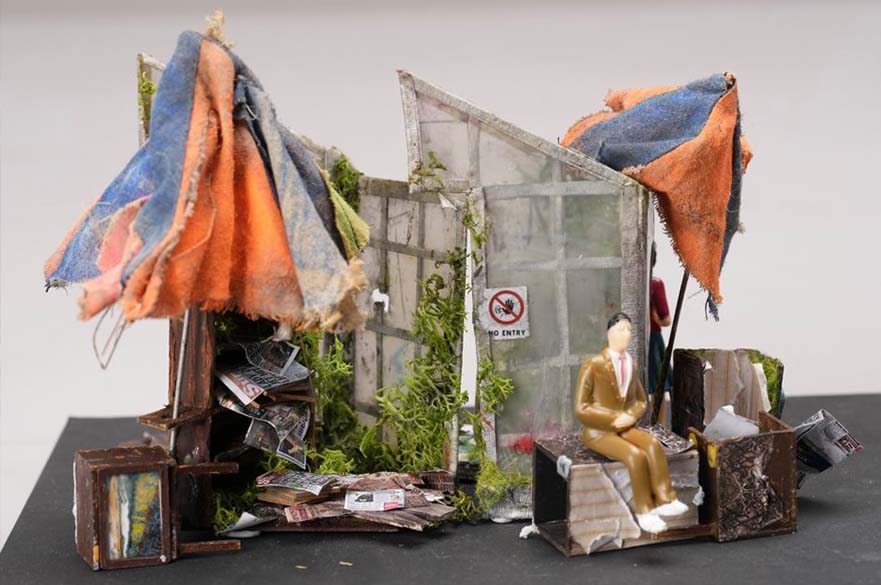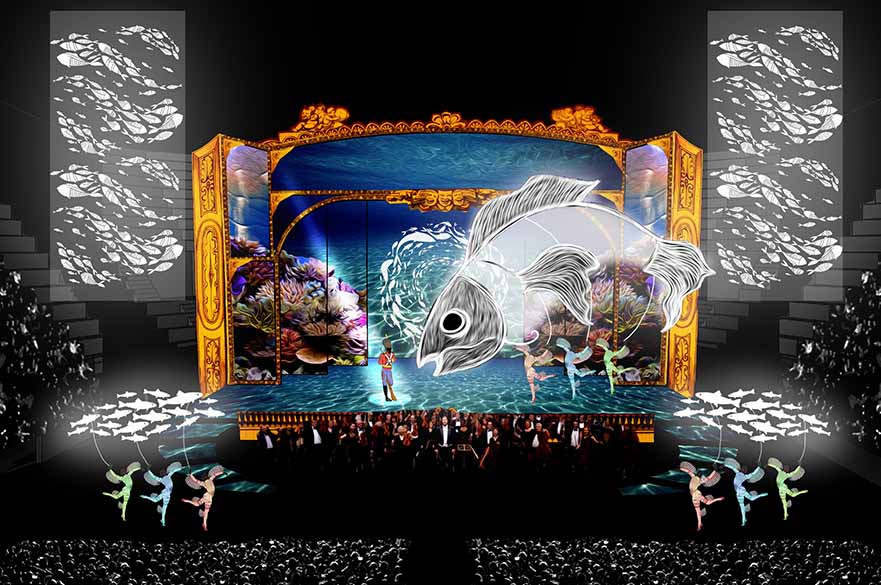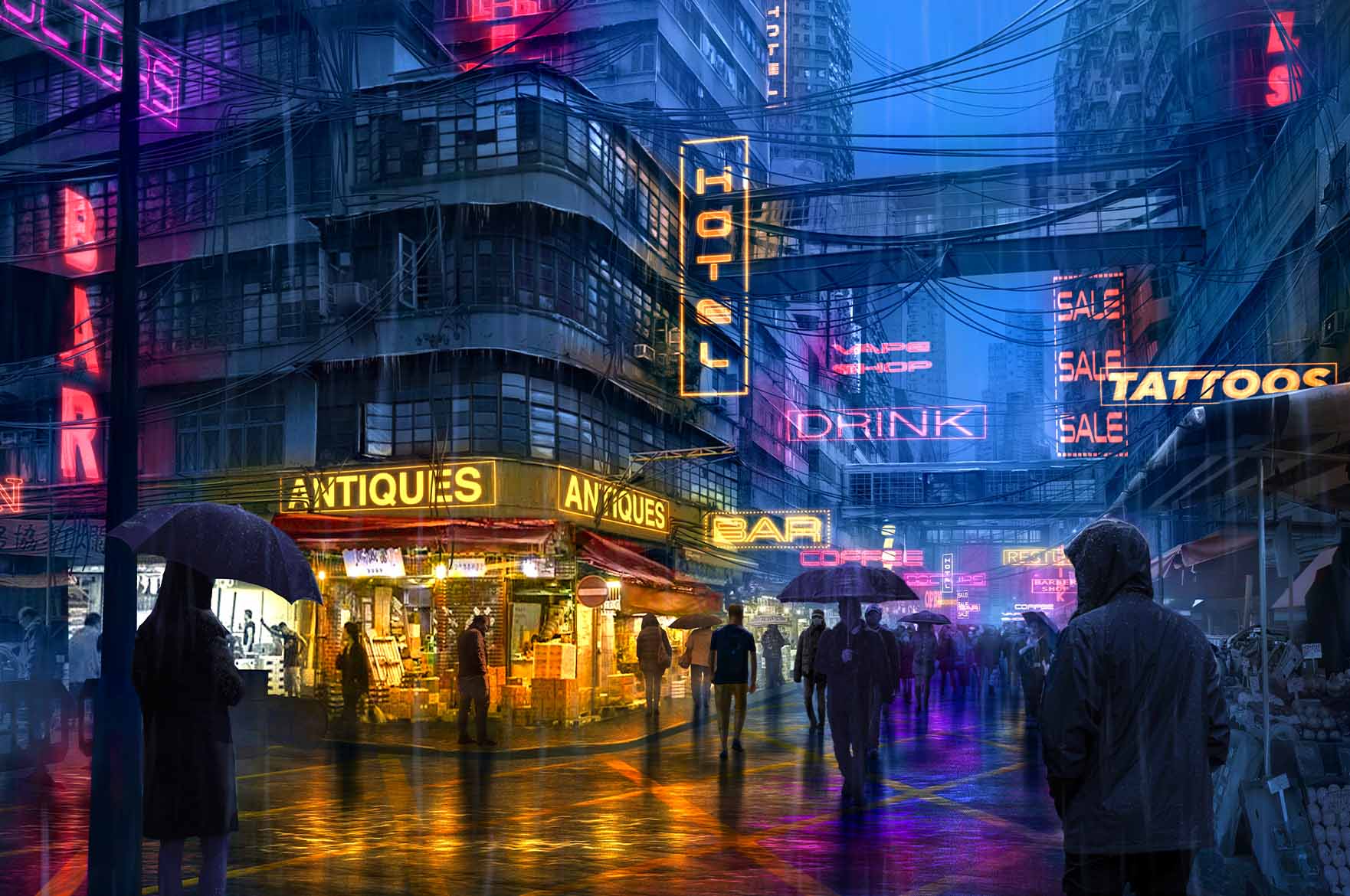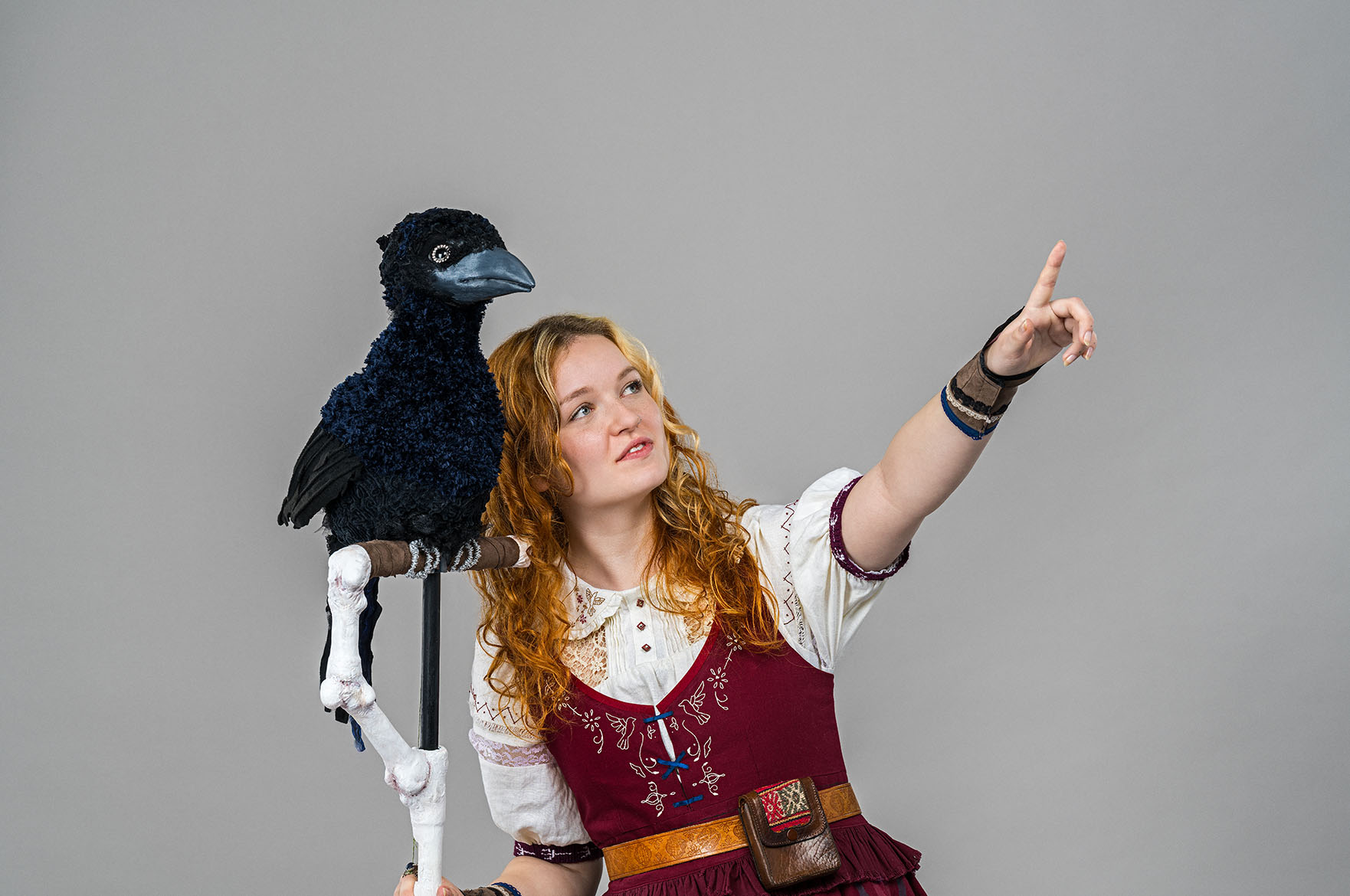This course is in Clearing
Offers from 80 tariff points
About this course
Transform empty stages into vivid new worlds — set a powerful scene that conjures emotions before a word’s been spoken, or a note’s been played. If you’re a visual storyteller with a love of live performance, and you’re looking to create lifelong memories for audiences around the world, you’ve found your perfect course.
You’ll live and breathe live performance, developing your skills and trademark style as a designer. Learn from tutors who’ve collaborated on some of the most visually spectacular productions in the world, from A-list concerts to Broadway musicals; complete an optional placement at venues like the RSC, and across London’s West End theatres. When employers are looking for new talent to bring their next gig, play, musical, or production to life, don’t just be an option — be their priority.
Whether you’re designing interactive environments for the theatre, puppetry or technical costumes, visually stunning stages for concerts and esports events, or dynamic virtual spaces in the metaverse, there are so many opportunities to apply your vision and creativity. The only limit is your own imagination!
15
What you’ll study
From a concert to a play, how do place, politics, culture, and society influence the look and feel of a live performance? How can you bring a creative vision out of your head and into reality? What are the range of roles involved in staging a live event — and why is collaboration so important?
You already have the artistic vision — this course will nurture your imagination and provide you with the theoretical and practical skills to create the living, breathing environments that serve the vision of a performance, and capture the hearts and minds of an audience. On this course, you’ll:
- get hands-on, collaborating on projects like set construction and lighting design, gaining skills in scenic art projection mapping
- grow your critical and theoretical understanding of what makes a successful live event through small- and large-group debates, a look back at performances throughout history, and research projects that explore the influence of social, political, and cultural landscapes on the art of design
- work on live briefs with your course mates, developing your creative thinking skills in a subject that’s closest to your heart — whether that’s sustainability, social justice, enterprise and innovation, or community action
- take study modules that will teach you how to connect with the needs of a live audience, work collaboratively on a creative brief, and complete a work placement at one of our partners like the Royal Concert Hall, Nottingham Playhouse and the Nottingham Puppet Festival
- fine-tune your practical skills in our on-site design workshop, as you become an expert in drawing, scenic arts, printmaking, model-making, laser cutting, and more
- develop your awareness of the performing object and its interaction with an audience including carnival, puppetry, parade and site-specific theatre
- create a full-scale set, and design costumes that’ll become part of your graduate portfolio
- get digital-ready — explore emerging technologies like virtual, extended, augmented and mixed realities, and get familiar with industry-standard software packages like AutoCAD, Sketch-Up, Photoshop and Twinmotion by Unreal Engine
- develop your own trademark design style that can be applied to fashion shows, operas, rock concerts, music festivals, schools touring, museums and heritage site-specific performances, the metaverse, esports competitions, and more!
Here’s a full breakdown of the modules you’ll be studying:
Skills Passport for Performance
(20 credit points)
This module introduces a variety of practical technical skills and the concepts of safe professional practice. Through exploration of a range of materials and processes, you will build relevant skills and develop your practical knowledge base, while allowing flexibility for personal direction and acquiring an understanding of industry needs.
Introducing the Visual Narrative
(40 credit points)
This module will introduce you to design for theatre and live performance through collaborative and individual projects, equipping you with theoretical and practical skills necessary for creating and expressing design concepts and narratives. You will develop observational abilities, experiment with various design elements, and enhance their visual communication, self-evaluation, and critical thinking skills through practical and digital work.
Possibilities of Practice
(40 credit points)
Building on the previous module 'Introducing Visual Narrative,' this module will allow you to apply your knowledge in live performance design and develop professional practices in production techniques. Focusing on collaboration and core scenic crafts like set construction and lighting design, you will work in small teams to create a spatial design concept, guided by technical and industry professionals, and you will learn to manage materials, tools, and digital technologies within the interdisciplinary performance design field.
Theatre Context
(20 credit points)
This module introduces contextual studies, research approaches, and academic writing, focusing on the interaction between theatre, performance, and live events with social, political, and cultural landscapes. It aims to develop critical thinking and writing skills, culminating in a final illustrated essay that reflects the significance of design in narrative creation and its broader cultural implications.
CoLab: Research, Exploration and Risk-taking
(20 credit points)
Through active participation with team-based problem-solving, you will work together in mixed teams on a project where you will use your creative ideas to generate solutions to the challenge or brief. Your project will allow you to explore how creativity can make an impact in society, as you choose a theme of sustainability, social justice, enterprise and innovation or community. This collaborative learning experience will expose you to a range of new processes and approaches that will develop your creative thinking.
Exploration and Innovation
(40 credit points)
This module helps you discover your personal design process through exploration and experimentation, enhancing your understanding of performance design practice and authorship. It introduces diverse theories and practices, emphasises transformative relationships with audiences, and focuses on evolving technologies, encouraging you to apply these concepts in various performance styles while reflecting on contemporary industry practices and sustainable principles.
Industry Placement
(40 credit points)
This module supports your career aspirations through a professional placement, enhancing your professional practice and awareness of sustainable design. You will document your experience, share insights in a symposium, and develop key professional attributes, employability, and a professional network while reflecting on your future aspirations.
OR
Audience and Live Practice
(40 credit points)
This module connects you to live industry briefs and professional practice, allowing you to develop experimental design for performance using traditional and evolving technologies while reflecting on current influences and debates in performance design. It aims to build your confidence in designing for various spaces, promote ethical and sustainable practices, and enhance your ability to connect with audiences, culminating in a work-like experience with direct client and audience engagement.
Optional module:
(20 credit points)
You will also choose one 20-credit module from:
- 3D Materials and Exploration
- Storyboarding
- Millinery: Object and Narrative
- Model Making: Object and Narrative
- Performance for Motion Capture
- Live Art / Collisions
- Virtual Production
- Prop Making
Optional Placement Year (Sandwich)
We have an option for all of our students to undertake a placement year (Sandwich) and allow you to decide whether this is right for you once you have completed years 1 and 2 of your course. This time spent working in industry provides our students with crucial work experience, which is highly prized and much sought after by employers upon graduation. If you are successful in securing a placement you will have the chance to gain an additional Certificate or Diploma in Professional Practice, dependent on duration.
The additional placement year incurs a fee. For international students considering the transfer to the 4-yr SW route it’s important to seek advice from the International Student Support team and the Home Office regarding any potential visa implications and costs. For UK students, advice should also be sought regarding SLC eligibility, if applicable.
* If you choose to take the sandwich route option, you will still need to apply for this course with the full-time UCAS code: W460
Live Performance Collaboration
(40 credit points)
This module aims to advance your theatre and live performance design skills to a professional level through a competitive industry project, providing a work-like experience with significant national and regional organisations. You will work alongside industry professionals to create a full-scale set and costume design, experiment with evolving technologies, and develop a graduate portfolio, preparing you for a successful career in various creative professions.
Major Project - Live Performance Design
(60 credit points)
This module allows you to create a personalised design project, enhancing your role as a theatre maker through self-initiated work. You will develop a learning agreement with your tutors, initiate and manage a complex project, and present your research through various formats, such as a reflective essay, video presentation, or podcast.
Professional Futures - Live Performance Design
(20 credit points)
In this module, you'll create a Reflective Evaluative Document (RED) in either written, video diary, or podcast format. You'll explore real-world industry insights to prepare you for your future career path. Throughout the year, you'll engage in activities that enhance your professional development and build a Professional design portfolio. These projects will help you reflect on your skills, experiences, and career goals, making you more employable in a global context.
We regularly review and update our course content based on student and employer feedback, ensuring that all of our courses remain current and relevant. This may result in changes to module content or module availability in future years.
Don’t just take our word for it, hear from our students themselves
Student Work
Video Gallery
How you're taught
You’ll learn from award-winning, internationally acclaimed lecturers who’ve worked on some of the world’s greatest productions — from Miss Saigon to the 2012 Olympic Games. Meanwhile, guest speakers like Delfont Mackintosh technical director Chris Boon, international opera designer Leslie Travers, and Stage One creative producer Neil Franklin will keep you informed of the latest industry trends, and share the secrets of their success.
You’ll learn through a mix of:
- lectures, where you’ll explore the key processes in design for theatre and live performance
- workshops, where you’ll apply your new art direction skills
- supportive studio sessions, for a more community-focused approach to creating
- friendly small-group tutorials, and regular one-to-ones
- Co Lab, where you’ll partner with students from other fields to work on real-world industry briefs and projects whilst developing your skills in risk-taking and cross-discipline skills
- field trips to theatrical exhibitions in London and Prague, plus local visits to the likes of Nottingham Playhouse, the Theatre Royal, Rocket Scenery, City Arts, the National Justice Museum and Nottingham College
- studying abroad, with one of our international exchange partners like Ryerson University in Canada
- entering industry competitions, like the Nottingham Playhouse Prize for Set Design and Graduate Student Showcase Festival
Careers and employability
Just as there are no limits to your creative skills, there are no restrictions on where you can apply them. There’ll always be an audience for what you can offer, and the opportunities to showcase your skills as a visual storyteller are constantly evolving.
Will you follow in the footsteps of our recent graduates, who’ve gone on to work for the English National Opera, as model-makers for Cameron Mackintosh, design associates for Es Devlin, and design assistants at the RSC? Maybe you’ll turn your talents to the next generation of esports events or create immersive new worlds in the metaverse.
Along the way (and for up to three years after your course finishes), you’ll have the support of our friendly, award-winning Employability experts. Once you’ve graduated, your professional pathways could include:
- Set Designer: specialising in designing sets for different performance mediums, including opera or dance
- Event Designer: designing the layout and aesthetics of events, including corporate functions and weddings
- Design Assistant: working as a model-maker and draftsperson in a theatre designer’s studio
- Costume Designer: focusing on clothing and accessories for stage and screen productions
- Production Designer: working in film or television to create the overall visual style of a project
- Props Master: managing the acquisition and creation of props used in productions
- Art Director: overseeing the artistic aspects of a project, often in advertising, film, or television
- Exhibit Designer: creating engaging displays for museums or galleries
- Festival Decor: designing and making for international arts festivals
- Theatre Educator: teaching design principles and techniques in schools or community programmes.
Campus and facilities
You’ll gain hands-on experience in our dedicated Waverley studio theatre and construction and paint workshops. View our Nottingham School of Art & Design Facilities Hub here. You’ll work alongside fellow artists, designers, photographers, illustrators, animators, and filmmakers to enhance your skills and inspire new ideas.
Our City Campus has everything you’ll need to keep occupied between lectures. As well as the Boots Library and its beautiful roof garden, there’s a 100-station gym; a whole host of cafés, bars and restaurants catering to every taste; our Students’ Union and popular Global Lounge; plenty of relaxed spaces to tackle your assignments or catch up with friends.
By taking just a few steps off campus, and you’ll find yourself in the beating heart of Nottingham: one of Britain’s top ten student cities, and a hub of creative activity. Find inspiration at famed vintage fashion outlets such as Cow and Braderie, quirky independent businesses, and vibrant cultural hotspots like Nottingham Contemporary and Broadway Cinema.
Entry requirements
This course is in Clearing
Looking for a place in Clearing? We are accepting application and would love to hear from you!
UK students
This course is in Clearing
Looking for a place in Clearing? We are accepting applications and would love to hear from you!
Clearing requirements
From 80 UCAS tariff points from up to 4 qualifications.
To discuss our entry requirements and see what we can offer you, call us now on +44 (0)115 848 6000. Alternatively, if you already have your qualifications, apply online via our Clearing Application form.
Preparing for results day? Beat the queue and sign up for NTU Priority for up-to-date information about all things Clearing. You’ll get an offer ahead of Clearing, subject to you achieving the required grades on results day.
Other requirements
To find out what qualifications have tariff points, please use our tariff calculator.
Additional requirements for UK students
There are no additional requirements for this course.
Contextual offers
If you don’t quite meet our entry requirements, we might be able to make you a lower offer based on a range of factors, including your background (such as where you live and the school or college you attended), your experiences and your individual circumstances (you may have been in care, for example). This is called a contextual offer, and we get data from UCAS to help make these decisions. We do this because we believe everyone with the potential to succeed at NTU should have the opportunity to do so, no matter what barriers you may face.
Meeting our entry requirements
Hundreds of qualifications in the UK have UCAS Tariff points attached to specific grades, including A-levels, BTECs, T Levels and many more. You can use your grades and points from up to four different qualifications to meet our criteria. Enter your predicted or achieved grades into our Tariff calculator to find out how many points your qualifications are worth.
Other qualifications and experience
NTU welcomes applications from students with non-standard qualifications and learning backgrounds, either for year one entry or for advanced standing beyond the start of a course into year 2 or beyond.
We consider study and/or credit achieved from a similar course at another institution (otherwise known as credit transfer), vocational and professional qualifications, and broader work or life experience.
Our Recognition of Prior Learning and Credit Transfer Policy outlines the process and options available for this route. If you wish to apply via Recognition of Prior Learning, please contact the central Admissions and Enquiries Team who will be able to support you through the process.
Getting in touch
If you need more help or information, get in touch through our enquiry form.
International students
This course is in Clearing
Looking for a place in Clearing? We are accepting applications and would love to hear from you!
Clearing requirements
From 80 UCAS tariff points from up to 4 qualifications.
To discuss our entry requirements and see what we can offer you, call us now on +44 (0)115 848 6000. Alternatively, if you already have your qualifications, apply online via our Clearing Application form.
Preparing for results day? Beat the queue and sign up for NTU Priority for up-to-date information about all things Clearing. You’ll get an offer ahead of Clearing, subject to you achieving the required grades on results day.
We accept equivalent qualifications from all over the world. Please check your international entry requirements by country.
Other requirements
English language requirements: See our English language requirements page for requirements for your subject and information on alternative tests and Pre-sessional English.
Additional requirements for international students
If you need help achieving the academic entry requirements, we offer a Foundation preparation course for this degree. The course is offered through our partner Nottingham Trent International College (NTIC) based on our City campus.
English language requirements
View our English language requirements for all courses, including alternative English language tests and country qualifications accepted by the University.
If you need help achieving the language requirements, we offer a Pre-Sessional English for Academic Purposes course on our City campus which is an intensive preparation course for academic study at NTU.
Other qualifications and experience
If you have the right level of qualifications, you may be able to start your Bachelors degree at NTU in year 2 or year 3. This is called ‘advanced standing’ entry and is decided on a case-by case basis after our assessment of your qualifications and experience.
You can view our Recognition of Prior Learning and Credit Transfer Policy which outlines the process and options available, such as recognising experiential learning and credit transfer.
Sign up for emails
Sign up to receive regular emails from the International Office. You'll hear about our news, scholarships and any upcoming events in your country with our expert regional teams.
Getting in touch
If you need advice about studying at NTU as an international student or how to apply, our international webpages are a great place to start. If you have any questions about your study options, your international qualifications, experience, grades or other results, please get in touch through our enquiry form. Our international teams are highly experienced in answering queries from students all over the world.
Policies
We strive to make our admissions procedures as fair and clear as possible. To find out more about how we make offers, visit our admissions policies page.

